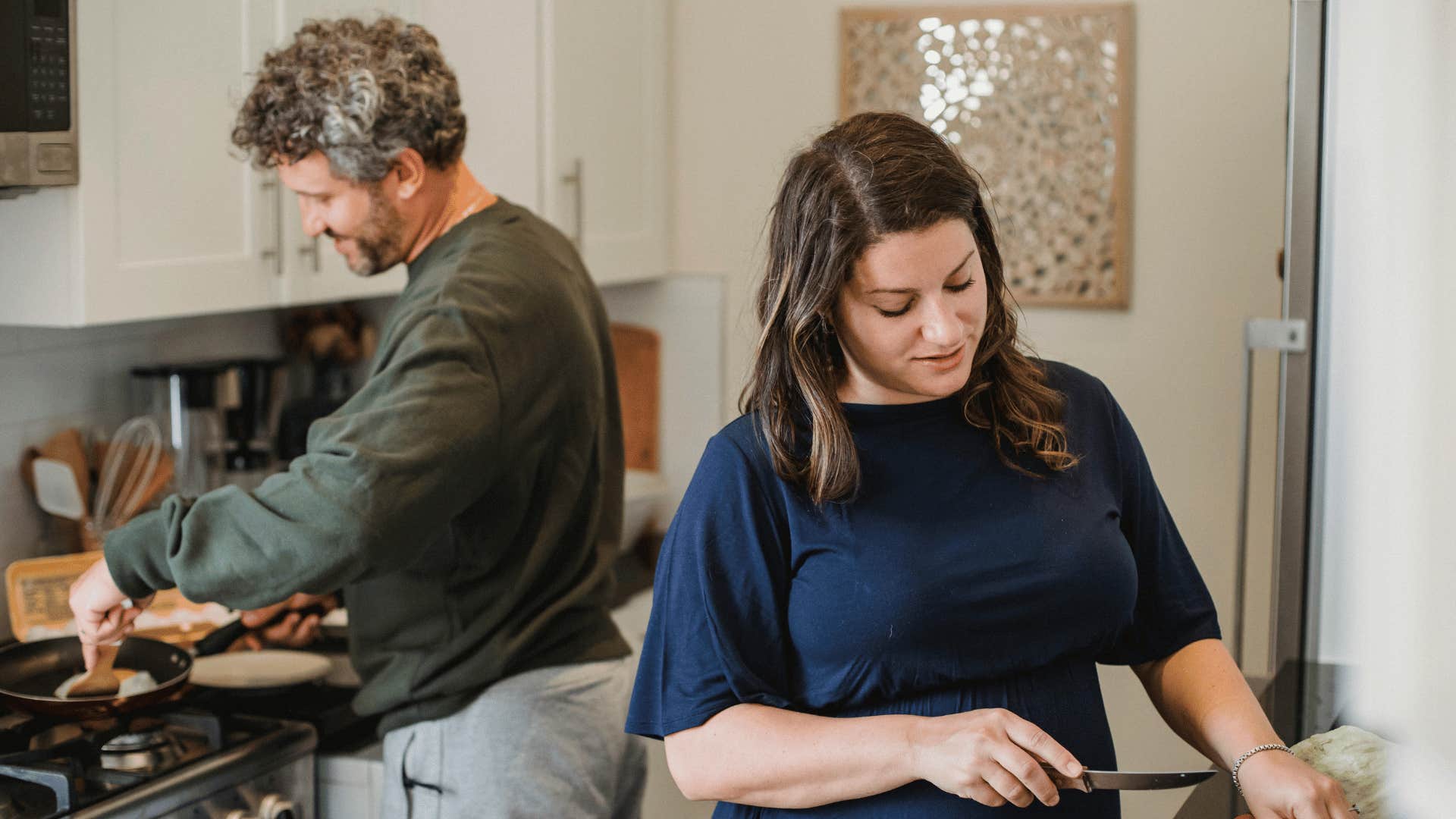In the beginning, love is grand. It’s just you and your partner. You can’t seem to get enough of each other. Slowly, over time, your relationship becomes less important, and you begin to drift away.
Love is a splendid thing and it does make the world go round, but if you want to stay together, then be prepared to work at it. That doesn’t mean sacrificing who you are, but it does mean softening and finding space for your partner. It’s all about loving someone despite what life throws at you.
9 rules for loving someone without losing yourself, according to psychology:
1. Kiss for six seconds daily
 Mikhail Nilov | Pexels
Mikhail Nilov | Pexels
You read that right. In our busy world most of the time we give our partner a peck. You need to stop and kiss on the lips for six seconds. It’s not really that long and the physiological effects are great.
2. Learn one important thing about your partner’s day
 Jack Sparrow | Pexels
Jack Sparrow | Pexels
This is also known as “departing”. Before your partner leaves for the day make it a point to know one important thing about their day. Don’t be scared to ask if they don’t say. This shows genuine interest, which helps build a friendship.
Researchers believe the first 4 minutes when a couple awakens together and the first 4 minutes after returning to each other at the end of the workday are critical to the success or failure of the partnership.
3. Greet your partner at the end of the day
 Amina Filkins | Pexels
Amina Filkins | Pexels
This is a time when you put down all electronics and have a twenty-minute conversation with your partner. This is where you can talk about their day, and you are not judging or giving feedback. This will help reduce external stresses in the relationship.
4. Know each other’s love languages
 Pavel Danilyuk | Pexels
Pavel Danilyuk | Pexels
This is about knowing your partner inside and out. As human beings we are complex and we are always changing.
Set aside some time to discuss what your love language is and how you need to be loved. This will let your partner know that you have their back no matter what.
5. Touch, touch, touch
 Leah Newhouse | Pexels
Leah Newhouse | Pexels
That’s right! Kissing, hugging, and playing with one another. The more the better. We all like to touch and be touched. The next time your partner is cooking in the kitchen, rub up behind them. Be playful, often.
6. Remember: what’s old is always new again
 Ba Tik | Pexels
Ba Tik | Pexels
We can’t realistically expect our long-term partner to be the exact same person we married. Although this could be a positive thing, you now have a whole new person in front of you with the benefits of being married.
It’s not about going back, it’s about moving forward and building a relationship that is better suited for the two of you.
7. Complain without blame
 Ketut Subiyanto | Pexels
Ketut Subiyanto | Pexels
After you’ve been in a relationship for a while, it’s easy to blame your partner for what is going wrong in the relationship. Start using “I” statements. This is where you state how you are feeling about what your partner did, and what you need from your partner in the future.
8. Laugh together regularly
 Ketut Subiyanto | Pexels
Ketut Subiyanto | Pexels
Bring up a funny moment from the past that makes you both laugh. Couples that have fun together are more likely to stay together.
Maybe the last time you were out to dinner, the server said or did something funny. Bring it up with your partner. You can also watch a funny comedy together.
9. Stay in touch throughout the day
 Anna Shvets | Pexels
Anna Shvets | Pexels
After being in a relationship for a while, it’s easy to get caught up in your day. Send a playful or loving text to your partner during the day. Let your partner know how your day is going. This is a great time to let your partner know how that one important part of your day is going.
For example, if you were worried about an important presentation, let your partner know you aced it.
It’s important that your partner feels first in your life. Even if you start with a few of these tips, your partner will begin to feel that way. The more you do this the more natural it will feel. This will also help build a lasting friendship, which is the key to intimacy.
A 2012 study investigated whom subjects felt close to and how they interacted daily. Subjects who lived with a romantic partner seemed to have receded into their coupledom.
When asked to rate, on a scale of one to seven, how close various relationships felt, they’d frequently give the highest mark to only their partner and their children, if they had them; when subjects illustrated their social networks, they’d commonly put those other connections—friends, co-workers, siblings—on the outskirts of their map.
Lianne Avila is a Licensed Marriage & Family Therapist. She is dedicated to helping couples and has completed Levels 1, 2, and 3 at The Gottman Institute.

